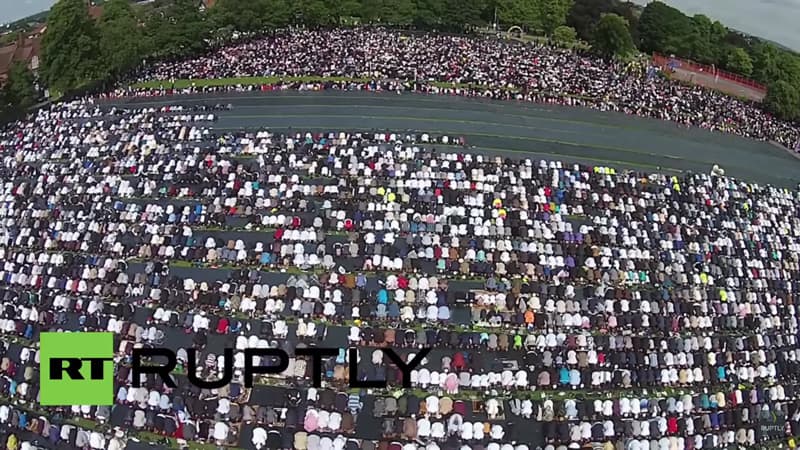Londonistan: 423 New Mosques; 500 Closed Churches
Giulio Meotti, Gatestone Institute, April 2, 2017
{snip}
“London is more Islamic than many Muslim countries put together”, according to Maulana Syed Raza Rizvi, one of the Islamic preachers who now lead “Londonistan“, as the journalist Melanie Phillips has called the English capital. No, Rizvi is not a right-wing extremist. Wole Soyinka, a Nobel Laureate for Literature, was less generous; he called the UK “a cesspit for Islamists”.
{snip}
British multiculturalists are feeding Islamic fundamentalism. Above all, Londonistan, with its new 423 mosques, is built on the sad ruins of English Christianity.
The Hyatt United Church was bought by the Egyptian community to be converted to a mosque. St Peter’s Church has been converted into the Madina Mosque. The Brick Lane Mosque was built on a former Methodist church. Not only buildings are converted, but also people. The number of converts to Islam has doubled; often they embrace radical Islam, as with Khalid Masood, the terrorist who struck Westminster.
{snip}
In Birmingham, the second-largest British city, where many jihadists live and orchestrate their attacks, an Islamic minaret dominates the sky. There are petitions to allow British mosques to call the Islamic faithful to prayer on loudspeakers three times a day.

Thousands of Muslims participate in a public outdoor prayer service in Birmingham, England, on July 6, 2016. (Image Credit: Ruptly video screenshot)
By 2020, estimates are that the number of Muslims attending prayers will reach at least 683,000, while the number of Christians attending weekly Mass will drop to 679,000.
{snip}
While nearly half of British Muslims are under the age of 25, a quarter of Christians are over 65. “In another 20 years there are going to be more active Muslims than there are churchgoers,” said Keith Porteous Wood, director of the National Secular Society.
Since 2001, 500 London churches of all denominations have been turned into private homes. During the same period, British mosques have been proliferating.
{snip}
Churchgoers are declining at a rate that within a generation, their number will be three times lower than that of Muslims who go regularly to mosque on Friday.
{snip}
In 2015, an analysis of the most common name in England showed it was Mohammed, including spelling variations such as Muhammad and Mohammad.
Most important cities have huge Muslim populations: Manchester (15.8%), Birmingham (21.8%) and Bradford (24.7%). In Birmingham, the police just dismantled a terrorist cell; there is also a greater probability that a child will be born into a Muslim family than into a Christian one. In Bradford and Leicester, half the children are Muslim.
{snip}
London is also full of sharia courts. There are officially 100. The advent of this parallel judicial system has been made possible thanks to the British Arbitration Act and the system of Alternative Dispute Resolution. These new courts are based on the rejection of the inviolability of human rights: the values of freedom and equality that are the basis of English Common Law.
{snip}
British universities are also advancing Islamic law. The official guidelines of the university, “External speakers in higher education institutions,” published by Universities UK, provide that “orthodox religious groups” may separate men and women during events. At Queen Mary University of London, women had to use a separate entrance and were forced to sit in a room without being able to ask questions or raise their hands — as in Riyadh or Tehran. The Islamic Society at the London School of Economics held a gala, in which women and men were separated by a seven-meter panel.
After the attack on the French satirical magazine Charlie Hebdo, the head of MI6, Sir John Sawers, recommended self-censorship and “some restraint” in discussing Islam. The British ambassador in Saudi Arabia, Simon Collis, converted to Islam and completed the pilgrimage to Mecca, the hajj. He now calls himself Haji Collis.
What will be next?















